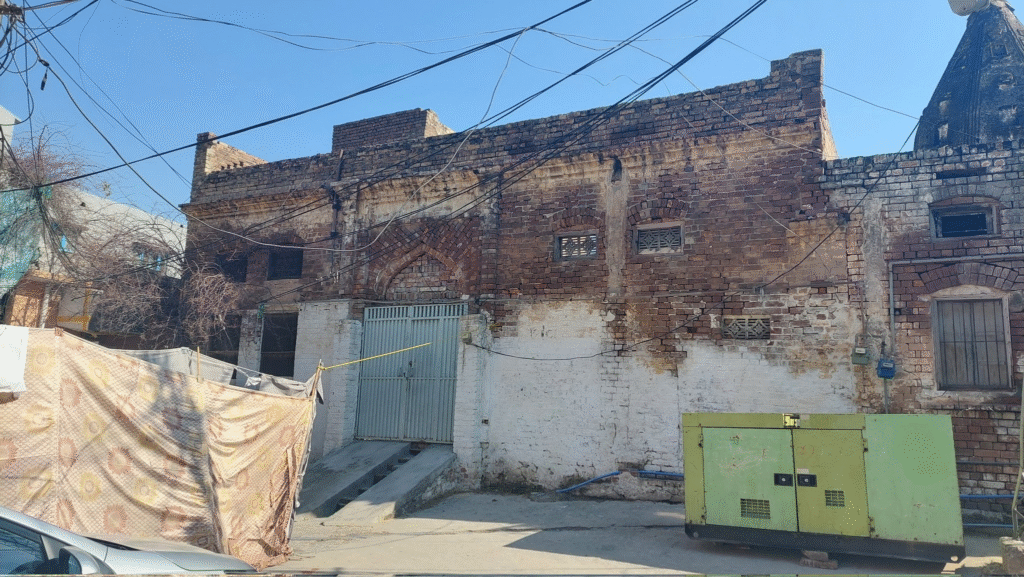AI Generated Summary
- In January 2020, it was besieged by a violent mob threatening to raze it and build a mosque.
- She is a religious minded girl But minority families get no religious freedom or safety for their daughters in Pakistan We urge to all PM of Globe pic.
- In the wake of Operation Sindoor, where Indian forces exposed Pakistan’s deliberate targeting of Sikh civilians and the bombing of gurdwaras in Poonch, Islamabad has quickly pivoted to damage control.
In the wake of Operation Sindoor, where Indian forces exposed Pakistan’s deliberate targeting of Sikh civilians and the bombing of gurdwaras in Poonch, Islamabad has quickly pivoted to damage control. Predictably, it is once again waving the tattered flag of a “special bond” with Sikhs. But let us be clear: this is not an embrace—it’s a smokescreen. A narrative war. A cynical PR campaign aimed at whitewashing Pakistan’s own record of persecution, violence, and cultural erasure against the Sikh community.
The Disappearing Sikhs of Pakistan
In 1941, the Sikh population in what is now Pakistan stood at 1.67 million. Today, that number has collapsed to about 8,000. Some estimates are even more dire. This isn’t just a tragic footnote of Partition; it is an ongoing crisis fueled by systemic violence, forced migration, and official neglect.
Sikhs in Pakistan are not simply vanishing—they are being erased.
And the erasure is bureaucratically sanctioned. The 2017 Pakistani census didn’t even bother to count Sikhs. The message is chillingly clear: if you’re not counted, you don’t count.
In regions like Khyber Pakhtunkhwa, where extremist violence is a routine threat, Sikhs are left with two options: flee or perish. Many choose exile—across the border into India or further abroad—over a life of fear.
Heritage Hollowed Out
Pakistan boasts around 160 historical gurdwaras. But only a dozen or so are operational, and even fewer are properly maintained. The rest? They’re either abandoned, desecrated, or repurposed into structures that erase their Sikh identity.

- Gurdwara Damdama Sahib in Rawalpindi is now home to meat shops.
- Gurdwara Sri Guru Singh Sabha in Sahiwal has been turned into a police station.
- Gurdwara Lal Khoohi, where Guru Arjan Dev Ji was martyred, was converted into a Sufi dargah—its Sikh history overwritten.
Even Gurdwara Nankana Sahib, among the holiest Sikh shrines, isn’t safe. In January 2020, it was besieged by a violent mob threatening to raze it and build a mosque. Police did little.
#NankanaSahib, the birth place of Shri Guru Nanik Dev ji, is under attack by angry Muslim mob. They are demanding to change the name of town to Ghulam.e.Mustafa.#Minorities, be you are a #Hindu, #Christian or #Sikh can never claim we are safe and secure here in #Pakistan. pic.twitter.com/m9JeNCqy1W
— Kapil Dev کپل دیو (@KDSindhi) January 3, 2020
The scars run deep.
Pakistani Islamists broke Maharaja Ranjit Singh's statue in Lahore. Khalistanis vowed to take revenge by establishing Khalistan in India. pic.twitter.com/fOvcX6afEe
— Pakistan Untold (@pakistan_untold) February 14, 2024
Systemic Abuse, Not Solidarity
Pakistan’s attempt to claim solidarity with Sikhs after Operation Sindoor collapses under the weight of its own contradictions.
In 2025, Pakistani shelling killed four Sikhs in Poonch and damaged a central gurdwara—yet Islamabad dares to lecture India on Sikh rights?
Gulab Singh, Pakistan’s first Sikh police officer, was evicted from his home, his turban ripped off. That is not how you treat “brothers.”
From some months ago – Pakistan’s first Sikh police officer Gulab Singh was forcibly evicted from his house in Lahore's Dera Chahal. Pleads to the police, 'at least give us 10 minutes we are staying here since 1947' pic.twitter.com/To9I6bWvZh
— Harpreet (@CestMoiz) June 19, 2022
Jagjit Kaur, a 19-year-old Sikh girl, was abducted in 2019, forcibly converted and married to a Muslim man. Her family’s pleas were ignored.
There is no NEWS of her & family is troubled thinking that may be just like Jagjit Kaur; she is also forced for Nikaah & conversion.She is a religious minded girl But minority families get no religious freedom or safety for their daughters in Pakistan We urge to all PM of Globe pic.twitter.com/RSj27ngqRY
— Radesh Singh Tony (@aoepoeRadesh) September 18, 2020
And while these incidents grab headlines, there’s a more insidious pattern: land grabs, forced conversions, and official complicity. The Evacuee Trust Property Board (ETPB), which is supposed to safeguard Sikh properties, is frequently accused of illegal occupations and enabling the desecration of religious sites.

Even Pakistan’s Defence Minister has admitted that minorities face violence, forced conversions, and attacks on religious places. This isn’t fringe behavior—it’s embedded in the state structure.
A Manufactured Myth
So what is this “special bond” Pakistan claims with Sikhs? It is a myth, engineered for optics, not born of history or mutual respect.
It is a narrative launched whenever Pakistan needs to polish its image abroad or stir unrest in India. It is invoked not out of empathy, but as a geopolitical tool. A sword disguised as an olive branch.
The lived reality of Sikhs in Pakistan is not one of cultural affinity but of cultural extinction. This is not kinship. It’s crisis.
The World Must Wake Up
The international community must stop being seduced by Pakistan’s soft-power theatrics and start holding it accountable for the systematic decimation of its Sikh community. Religious freedom is not a tourism slogan—it is a human right.
If Pakistan truly believes in Sikh-Muslim brotherhood, let it start by:
- Counting Sikhs in the next census.
- Restoring and preserving Sikh heritage sites.
- Prosecuting those who attack Sikhs, not protecting them.
- Ending forced conversions and punishing those responsible.
Until then, the claim of a “special bond” is nothing more than a lie wrapped in the language of solidarity.
Pakistan’s narrative war may win it headlines, but it cannot hide the truth: the Sikh community within its borders is not cherished—it is vanishing.
And the world can no longer afford look away.




